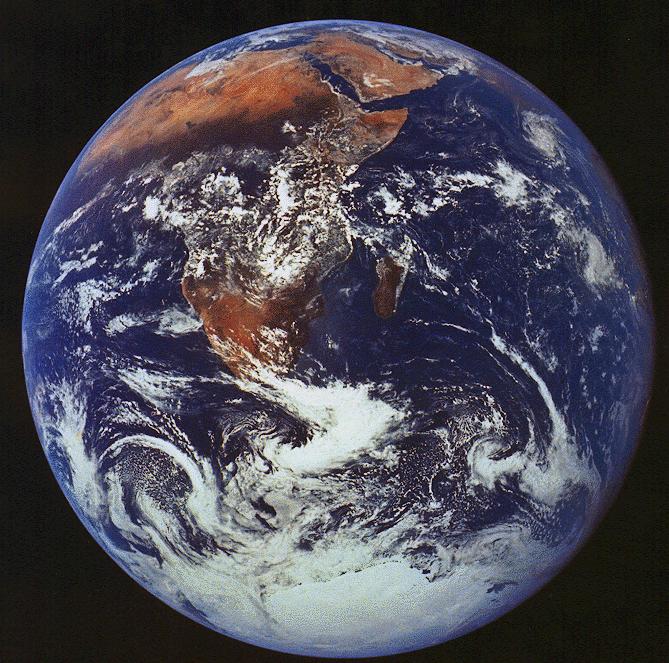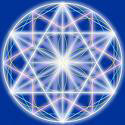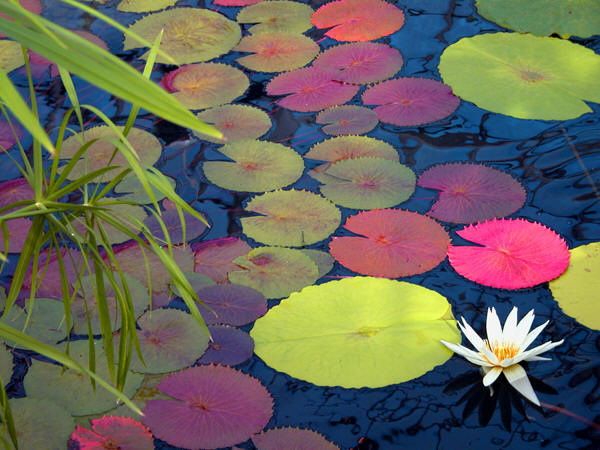
PERPETUAL PEACE
through PLANETIZATION
THE OTHER
CHOICE AND SYSTEM FOR THE PLANET
A Holistic Common Sense Structure for
the
Liberation of All
without War Through the New Foundation for the New World Vision
Humans * Animals * Environment * A Unity in Diversity Honoring the Truth of
The Oneness of All Life through Compassion, Humanity , Equality,
Prosperity and Respect
|
|
"When
I despair, I remember that all through history the way of truth and love
has always won. There have been tyrants and murderers and for a time
they seem invincible, but in the end, they always fall.. think of it,
always."
Mahatma Gandhi
 |
 The Terror Within |
Why We
Resist
By Chris Hedges
The refusal to pay my taxes if we go to war with Iran, and the portion of my taxes spent on the wars in Iraq and Afghanistan if we do not cut off funding for these two conflicts, is not a means. It is an end. I do not know if my refusal, and the refusal of others, will be effective in halting these wars. All I know is that it is worth doing. The alternative, a complacency bred from cynicism and despair, is worse. Refusing to actively resist injustice and flagrant violations of international law, refusing to attempt to turn back the tide of American tyranny, is surrender. It is the death of hope.
Acts of resistance are moral acts. They begin because people of conscience can no longer tolerate abuse and despotism. They are carried out not because they are effective but because they are right. Those who begin these acts are few in number and dismissed by the cynics who hide their fear behind their worldliness. Resistance is about affirming life in a world awash in death. It is the supreme act of faith, the highest form of spirituality. We remember and honor the names of those who, solitary when they began, defied their age. Henry David Thoreau. Jane Adams. Dietrich Bonhoeffer. Mahatma Gandhi. Milovan Djilas. Andrei Sakharov. Martin Luther King. Václav Havel. Nelson Mandela. It is time to join them. They sacrificed their security and comfort, often spent time in jail and in some cases were killed. They understood that to live in the fullest sense of the word, to exist as free and independent human beings, meant to defy authority. When the dissident Lutheran pastor Dietrich Bonhoeffer was taken from his cell in a Nazi prison to the gallows, his last words were “this is for me the end, but also the beginning.”
Bonhoeffer, who returned to Germany from Union Theological Seminary in New York to fight the Nazis, knew that most of the citizens in his nation were complicit through their silence in a vast enterprise of death. He affirmed what we all must affirm. It did not mean he avoided death. It did not mean that he, as a distinct individual, survived. But he understood that his resistance, and even his death, was an act of love. He fought for the sanctity of life. He gave, even to those who did not join him, another narrative. His defiance condemned his executioners.
“Cast your whole vote, not a strip of paper merely, but your whole influence,” Thoreau wrote in “Civil Disobedience” after going to jail for refusing to pay his taxes during the Mexican-American War. “A minority is powerless while it conforms to the majority; it is not even a minority then; but it is irresistible when it clogs by its whole weight. If the alternative is to keep all just men in prison, or give up war and slavery, the State will not hesitate which to choose. If a thousand men were not to pay their tax-bills this year, that would not be a violent and bloody measure, as it would be to pay them, and enable the State to commit violence and shed innocent blood.”
Those who recognize the injustice of the wars in Iraq and Afghanistan and a war with Iran, who concede that these wars are not only a violation of international law but under the post-Nuremberg laws are defined as criminal wars of aggression, yet do nothing, have forfeited their rights as citizens. By allowing the status quo to go unchallenged they become agents of injustice. To do nothing is to do something. They practice a faux morality. They vent against war on the Internet or among themselves but do not resist. They take refuge in the conception of themselves as moderates. They stand on what they insist is the middle ground without realizing that the middle ground has shifted under us, that the old paradigm of left and right, liberal and conservative, is meaningless in a world where, to quote Immanuel Kant, those in power have embraced “a radical evil.”
“I must confess that over the past few years I have been gravely disappointed with the white moderate,” King wrote from another era as he sat inside a Birmingham jail. “I have almost reached the regrettable conclusion that the Negro’s great stumbling block in his stride toward freedom is not the White Citizen’s Councilor or the Ku Klux Klanner, but the white moderate, who is more devoted to ‘order’ than to justice; who prefers a negative peace which is the absence of tension to a positive peace which is the presence of justice; who constantly says: ‘I agree with you in the goal you seek, but I cannot agree with your methods of direct action’; who paternalistically believes he can set the timetable for another man’s freedom; who lives by a mythical concept of time and who constantly advises the Negro to wait for a ‘more convenient season.’ Shallow understanding from people of good will is more frustrating than absolute misunderstanding from people of ill will. Lukewarm acceptance is much more bewildering than outright rejection.”
This lukewarm acceptance, this failure to act, is the worst form of moral cowardice. It cripples and destroys us. When Dante enters the “city of woes” in the “Inferno” he hears the cries of “those whose lives earned neither honor nor bad fame,” those rejected by heaven and hell, those who dedicated their lives solely to the pursuit of happiness. These are all the “good” people, the ones who never made a fuss, who filled their lives with vain and empty pursuits, harmless no doubt, to amuse themselves, who never took a stand for anything, never risked anything, who went along. They never looked too hard at their lives, never felt the need, never wanted to look.
We face a crisis. Our democratic institutions are being dismantled. We are headed for a state of perpetual war. We are paralyzed by fear. We will be stripped, if we do not resist, of our few remaining rights. To resist, while there is still time, is not only the highest form of spirituality but the highest form of patriotism. It is, if you care about what is worth protecting in this country, a moral imperative. There are hundreds of thousands who have died in the wars in Iraq and Afghanistan. This number would be dwarfed by a war with Iran, which could ignite a regional inferno in the Middle East. Not a lot is being asked of us. Compare our potential sacrifices with what is being inflicted on and demanded of those trapped in the violence in Iraq, Afghanistan and soon, perhaps, Iran. Courage, as Aristotle wrote, is the highest of human virtues because without it we are unlikely to practice any other virtue. Once we find courage we find freedom.
https://www.informationclearinghouse.info/article18868.htm
Resistance and Hope
By Charles Sullivan
If we
Americans are nothing more than hopelessly addicted consumers who
think of ourselves as an exceptional people with special
entitlements; if we see ourselves as god’s morally superior chosen
people; if we are selfish and greedy beyond redemption—then we are
complicit in all of the horrible crimes that government commits in
our name.
The United States has a violent history of atrocity and exploitation
that began with the arrival of Christopher Columbus on the shores of
North America in 1492. It extends all the way to the present and is
guided by the same poisoned ideology—Manifest Destiny.
Those who know history understand that we have never come to grips
with the horrible past which has led us to the appalling present. We
take great pains to suppress a ghastly history of murder and mayhem
in order to convince ourselves that we are not the people who
exterminated and enslaved the indigenous people of North America;
that we were not the practitioners of racism and chattel slavery
questing for treasure on the backs of the oppressed or the murderers
of striking workers seeking a living wage and decent working
conditions.
Americans need to believe that those events and their effects are
safely buried in the past, thereby absolving us from culpability for
them in the present; but they will not stay buried and they will
pursue us to our graves if we do not acknowledge them and comprehend
their implications.
Likewise, we suppress our responsibility in unleashing the plague of
global warming on the world and we call it a natural cycle so that
we do not have to change our ways. Under the unbearable pressure of
inconvenient truths, we ignore them in hopes that they will go away
rather than fester and multiply. But if that is who we are and if we
are incapable of coming to terms with the repulsive past there is no
hope for us. Our fate is already cast and a terrible price will have
to be paid by billions of people and countless other species. We
will reap as we have sown and misery and death will be our just
reward.
If that is indeed the case, then everything that follows this
paragraph may be an exercise in futility; albeit it a necessary one.
Despite the considerable evidence that suggests we are
collectively—like our ancestors also practitioners of Manifest
Destiny, history has disgorged some notable exceptions to the idea
of American exceptionalism and entitlement. The people who actively
opposed injustice throughout American history and offered fierce
resistance are a light in the gathering darkness—a beacon of hope to
those living in the present and an inspiration to those who will
follow us in the future. Most of them were ordinary people who
differed from us only in their willingness to resist the injustice
and tyranny of their time.
We have only to follow their example to avoid being ship wrecked in
a history that endlessly repeats itself. There may be a way out of
hell but it will be wrought with difficulty and characterized by
individual and collective struggle. The willingness of enough people
to engage in that struggle will determine the outcome and define the
future.
From thousands of indigenous uprisings against colonial occupation,
to Shay’s rebellion and continuing through heroic acts of
revolutionary unionism and the courageous peace activists of today’s
Code Pink, America has produced a continuous line of revolutionary
thinkers and organizers intent on fundamentally restructuring
society, including the redistribution of wealth and power.
America is a nation that has always been divided by socio-economic
class with the rich and powerful holding the keys to political
empire and advancing the agenda of the moneyed gentry over those of
everyone else. Yet we persist in calling our republic a
democracy—which suggests that we have no idea what a real democracy
should look like.
There has always been strong opposition to the tyranny of unjust
government and to the prevailing institutions of oppression and
inequality. And where there is resistance to evil, no matter how
small or seemingly impotent, there is hope. Resistance, apart from
being an act of defiance to illegitimate authority, is also an act
of faith akin to planting a seed that has enormous potential to
change the world.
Resistance creates hope and hope in turn fuels further resistance.
Resistance and hope give birth to a faith that believes that just
outcomes are possible through struggle and opposition.
Without resistance there is no hope and no possibility of the
transformative change that is so desperately needed. No matter how
seemingly futile the gesture of resistance—hope is its byproduct.
Hope is born of struggle and defiance to unjust authority. It is
born of a rebelliousness that refuses to tolerate the intolerable
and moves to oppose it. While it is theoretically possible that
people can exist without hope, they cannot flourish and become fully
human in its absence.
Where hope is abandoned, fear immediately rushes in to fill the
vacuum and tyranny quickly ensues. Lacking hope, we are simply
biding our time, stealing from the future and waiting for the end to
play out. We are passive spectators on the deck of the Titanic
awaiting our fate, whistling in the dark and trying to convince
ourselves that these menacing waters are safely navigable through
blind reckoning and indifference when in fact, they are not.
The great conservationist Aldo Leopold wisely observed: “One of the
penalties of an ecological education is that one lives alone in a
world of wounds.” That is also the penalty of having a social
conscience. Cultivating a social conscience can be exasperating and
it can adversely affect one’s health. But the failure to cultivate a
social conscience approaches what Dr. Martin Luther King called,
“Spiritual Death.” There are rarely easy ways out of the moral
morasses we create. Opposition and struggle are the way but they
exact costs that too few are willing to pay. That is why injustice
is passed from one generation to the next and injustice so often
prevails over justice. Our core beliefs should be non-negotiable.
Either we stand by them or we are deluding ourselves.
The situation is exacerbated when our fellow citizens fail to grasp
the gravity of the crises and even contribute to the injustice,
either deliberately or through unintended ignorance of the important
issues. In such times the reward of struggle appears small and the
temptation to quit is great. As the flag wavers and prevaricators
hold sway and ignorance and darkness, it seems, becomes all
pervasive and hope seems like a Utopian dream as dim as the long
lost sunlight of a nuclear winter.
In the midst of insidious fear and belligerent nationalism,
resistance is never an easy proposition; but it is a critical
component of human nature that gives rise to hope and, ultimately,
to transformative change and justice. Resistance creates
possibilities, whereas capitulation extinguishes them.
There are those who can look the other way in times of peril or
during the commission of crimes; and there are those who cannot. We
happen to belong to the latter group and we must try to set things
right. We are hard-wired that way—it is our nature and it is who we
are.
The alternative to resistance is as unthinkable as it is
unconscionable. As long as a single voice cries in the wilderness
hope exists and better outcomes are possible. It is in our DNA to
resist evil and, it is the only principled action available to us.
Conscience requires that we act on the knowledge we have, regardless
of our numbers or the consequences to ourselves. Other good people
will recognize the justice of the cause and a few will join the
struggle.
It is said that a journey of a thousand miles begins with a single
step. So, too, a movement is born with a single act of resistance
that is rooted in conscience.
No one knows if enough people will ever care enough to get involved
so we can reach the critical mass necessary to evoke transformative
change, which is why it is so imperative to continue the struggle.
It is impossible to know where we are on our journey, so we must
simply continue the excursion by moving forward which is what
defines us as progressives and separates us from the crowd.
Humankind is rarely uplifted by its majority or by those who play it
safe by looking the other way in the face of injustice. It is
advanced by those who see wrong doing and choose to do something
about it—the conscientious few that stand on principle and act in
accordance with those principles for the betterment of everyone.
Without principled resistance there is no possibility of
transformation from an unjust society to a just society; and no
possibility of driving a wooden stake through the heart of the
imperialist ambition that is killing our children and the children
of other people like us in distant lands in war after war.
Fighting injustice is an antidote to the debilitating despair that
casts a dark pall over the nation and across the world. Giving in to
that despair can only assure its continuation. Opposition to evil is
preferable to capitulation to it; and, moreover, it is the only
appropriate response. The beauty and joy is in the struggle, in
knowing the rightness of the cause; the stubborn refusal to
cooperate with evil or to commit crimes against earth and humanity.
While our struggle often feels lonely and futile, we are rarely as
isolated as we think. There are almost certainly kindred spirits in
our own communities. Put out your hand to see if anyone takes it.
You might just be surprised to know who is there.
For every front line activist there are tens of thousands who agree
with them in principle but who remain on the sidelines as
spectators. As conditions deteriorate and others come to appreciate
our position in the same light as we do, more of them are likely to
become involved in the resistance. The untapped potential of our
moral supporters is both enormous and grossly under appreciated.
Fear and uncertainty is all that keeps us apart but they can be
overcome through networking and solidarity.
Sweeping change and justice will never come from the inert masses
who occupy the safe middle grounds. As corporate fascism spreads
across the planet there are no safe places for anyone but the
fascists themselves. Nor will transformation come from the
neo-conservative regressives occupying the far right, as embodied by
the likes of Trent Lott and Rush Limbaugh and their ideological
brethren in corporate America. It will not be enacted through
neo-liberals such as Hillary Clinton either, or indeed anyone in the
mainstream.
Justice will come, as it always does, from the far left that
champion the cause of the disenfranchised and the defenseless. It
will be derived from ordinary citizens—people like you and I working
for justice and accepting nothing less; by standing up and being
counted and refusing to sit down and be quiet. Ordinary people must
become interested enough and they must care enough to take ownership
of government and demand fair and equal representation by it. But
awakening is often a painfully slow process and patience is so
difficult when urgency is needed.
Government that is not accountable to the people is accountable to
no one. That kind of government can only become fascist and prey
upon the people it is supposed to serve. Such government must be
abolished and replaced by genuine democracy—government of the
people, by the people, for the people—all of the people, not just
those with wealth and social status.
Obedience to authority that is not derived from the people
themselves will ultimately result in injustice and economic
inequity. Obedience can only assure the continuation of the
established orthodoxy and a future that is significantly worse than
the past and the present combined. If we truly believe in what we
claim to hold dear we must be willing to fight for those beliefs
without compromising them. Faith that is not driven by principled
action is useless—it is not real faith at all.
Yet, despite our best efforts, it may well be that the best we can
hope for is to slow the spread of the racist dogma of American
exceptionalism that, unfortunately, continues to define us as a
nation. Perhaps there are simply too few of us actively engaged in
resistance to stop the purveyors of hate and extremism. But even if
that is the case and resistance is futile, it does not change the
moral imperative to resist. Injustice is wrong and it must be
opposed. Stepping out of the way or quitting is to cooperate with
the evil we rail against. Apathy and hopelessness are the great
enablers of tyranny and we must never give in to them.
Given the enormity of the evil that stalks decency everywhere, rage
fatigue and depression are the prevalent symptoms that follow. All
of us are susceptible to them to various degrees because we feel so
alone and understandably frustrated. The few are expected, as they
always are, to do the work of many from which all will benefit in
the end.
Dealing with the defining issues of our time and the blundering
apathy of the multitudes can be infuriating and demoralizing. We
cannot do everything but each of us must do what we can to affect
the things we can change. Outrage and anger can be powerful tools
for motivation or they can become debilitating liabilities. We must
take care that they motivate rather than destroy us. Righteous
indignation and fury is a just response to what is being done in our
name but it must be harnessed and directed.
Continuous resistance is exhausting and necessary work. It is work
that will probably never bring us the admiration of our fellow
citizens who are more likely than not to hold us in contempt. People
fear what they do not understand and most still subscribe to the
myth of American exceptionalism. But it is the most important thing
that any of us will ever do. It is for us to show the way and keep
hope alive.
In these trying times of doublespeak and group think it is easy to
feel overwhelmed and demoralized. But action is the antidote to
despair. It is vital that we stay connected to other people engaged
in related struggles; that we provide mutual support to and
encourage one another to continue a spirited resistance that does
not know how to quit. We are rarely as alone as we are lead to
believe.
It is immensely helpful to know there are other people out there
doing the important work that the times require of each of us.
Seeing others engaged in resisting wrong doing may inspire others to
take up the cause and a powerful movement may someday be born. It is
the certainty of that knowledge that keeps hope alive and makes
existence not only bearable, but enjoyable.
I am not expecting anyone to do the impossible or to offer oneself
up for crucifixion or martyrdom. I am calling upon all good people
to simply live a wholesome and simple and decent life and to uphold
the principles of fairness, decency, sharing and empathy for others
and, most importantly, justice. An injury to one truly is an injury
to all.
Charles Sullivan is a nature photographer, free-lance writer and
community activist residing in the Ridge and Valley Providence of
geopolitical West Virginia. He welcomes your comments at
csullivan@phreego.com
https://www.informationclearinghouse.info/article18876.htm
|
|
IMAGINE a planet-wide system built for PERPETUAL PEACE, and no longer for PERPETUAL WAR |
|
|


